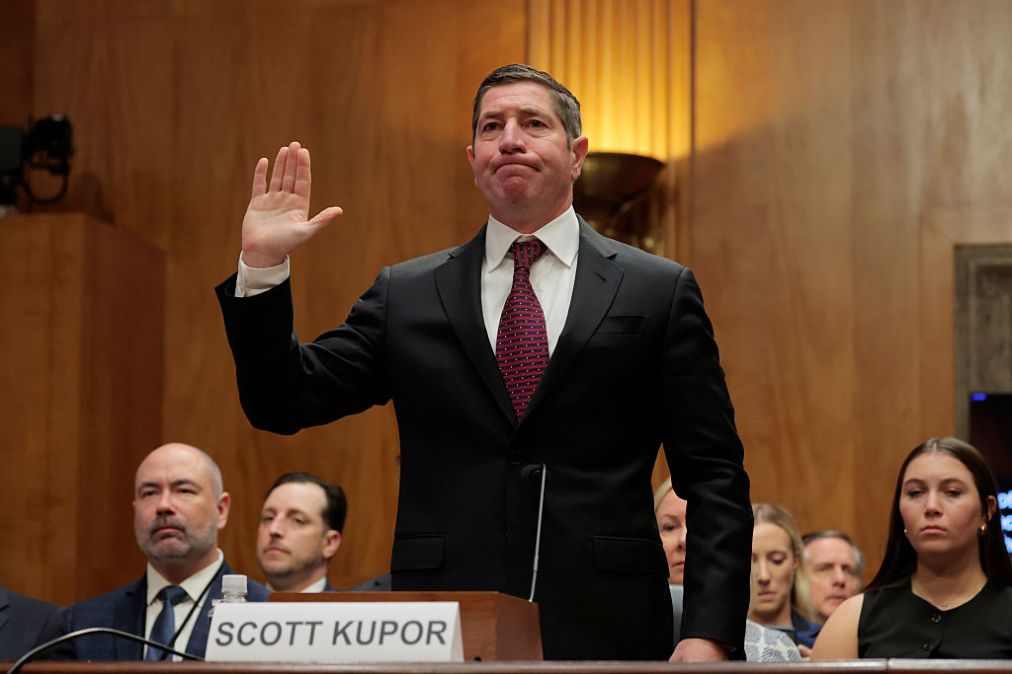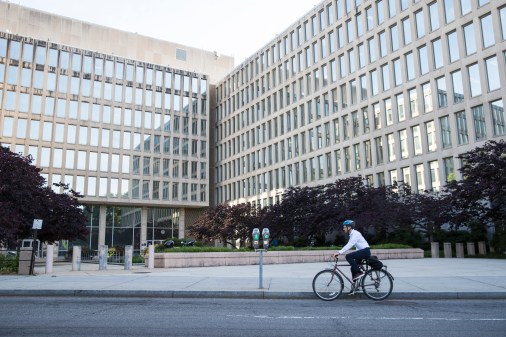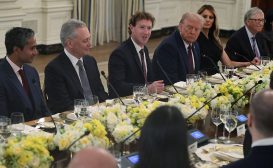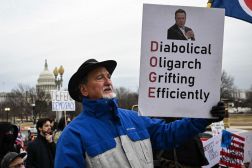OPM nominee tells DOGE-concerned Democrats he’ll protect workers’ data

President Donald Trump’s nominee to lead the Office of Personnel Management told senators Thursday that he’d protect federal workers’ data if he’s confirmed, speaking to Democrats’ concerns about Elon Musk’s DOGE accessing such information.
Appearing before the Senate Homeland Security and Governmental Affairs Committee, Scott Kupor fielded several questions about data privacy that lawmakers connected to the 2015 OPM breach. Democratic Sens. Elissa Slotkin of Michigan and Maggie Hassan of New Hampshire linked that incident to DOGE’s forays into government networks.
Slotkin cited reports of associates with the Musk-led group being granted access to taxpayer information at the Treasury Department and potentially to sensitive health information housed in Department of Veterans Affairs systems.
“You are the ultimate arbiter of personnel policy,” Slotkin said to Kupor. “Give me some assurance that you’re just not going to let Mr. Musk and the DOGE folks go in, take our data, put it into AI-enabled software and use it for any other way than what people have given permission for.”
Kupor, an investing partner and the first employee at the venture capital firm Andreessen Horowitz, told Slotkin that he believes “very strongly in data privacy,” and if he is confirmed to lead OPM, “we will ensure that we protect data, provide privacy, and make sure that people who are not authorized to access the systems will not have that access.”
Slotkin said she’s simply looking for “a little bit of backbone” when it comes to dealing with DOGE — essentially the opposite of what one judge called a “chaotic and haphazard” approach with the Treasury secretary granting two Musk liaisons access to department systems.
“I believe OPM is a really important part of the equation in the broader personnel system, and I will do as you’re describing,” Kupor said. “I don’t think it’s appropriate for us to give access to systems if people aren’t rightly available to see those. And I certainly think OPM can play a role there.”
Hassan had questions for Kupor about DOGE’s access to OPM records and the information of tens of millions of Americans housed in the agency’s systems. A federal judge on Thursday struck down a motion from the agency to dismiss a lawsuit from union groups over what they said was improper access provided to “unvetted and untrained” DOGE representatives.
Hassan asked Kupor if he’d commit to allowing OPM’s acting inspector general to continue an investigation into the matter “without any interference or retribution.” He said that he would, adding that “protecting data privacy is incredibly important, and we absolutely want a system where, if people have concerns, that there’s an appropriate way to investigate that.”
HSGAC Republicans showed little interest in following Democrats’ DOGE inquiries, but Sen. James Lankford, R-Okla., did tee up Kupor for his feelings on the OPM breach, the Chinese-backed hack that compromised the personal data of 21.5 million individuals a decade ago.
“I certainly do not want to see a repeat of what happened, obviously, many years ago,” Kupor said. “One of the first things that I will do is do a full business review, not just of all of our functions, but certainly data privacy and data protection. And so that will be one of the first orders of business when I hopefully have the opportunity to serve.”
Beyond data privacy issues, Kupor spent much of the hearing attempting to assuage lawmakers’ worries about how the Trump administration has approached its decimation of the federal workforce, as well as how many of those early decisions were communicated through OPM.
Sen. Ruben Gallego, D-Ariz., urged Kupor to keep in mind that the federal government is not analogous to “the VC world” or “the business world,” while ranking member Gary Peters, D-Mich., blasted DOGE and the Trump administration’s “reckless approach to eliminating programs as well as personnel.”
Kupor said the government currently has a “broken performance management” system for evaluating employees that he intends to reform, but high performers should be honored and rewarded. He indicated that letting federal workers go requires a different approach from what has occurred so far.
“I think the process is one that requires transparency and communication, and we need to recognize and respect the humanity of the workforce,” Kupor said. “I believe the right way to do this is through communication and respecting the rights and roles of employees.”






